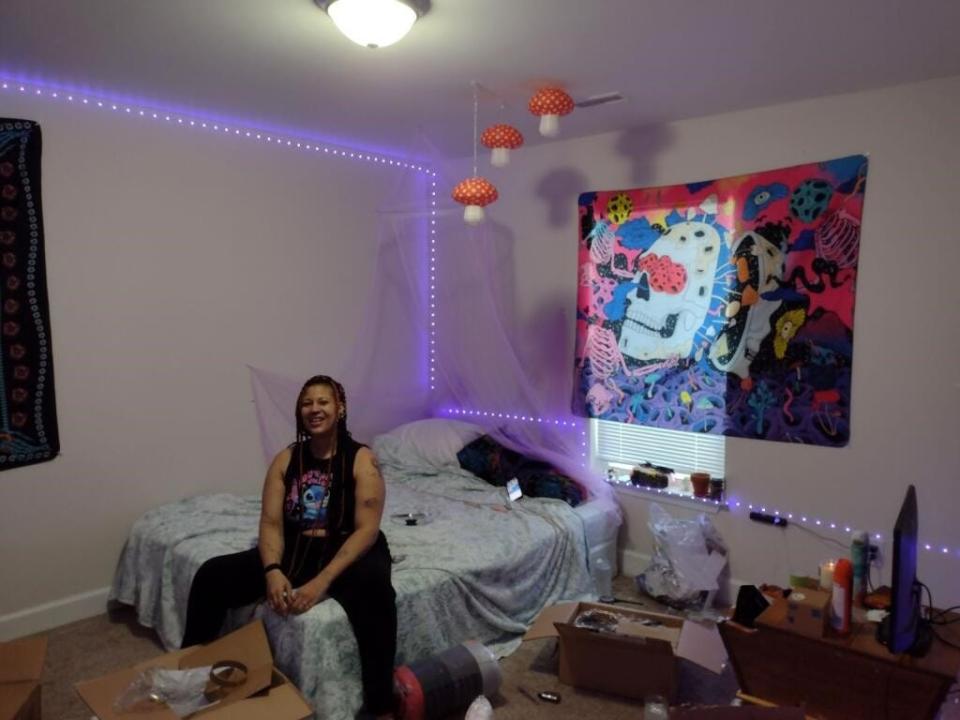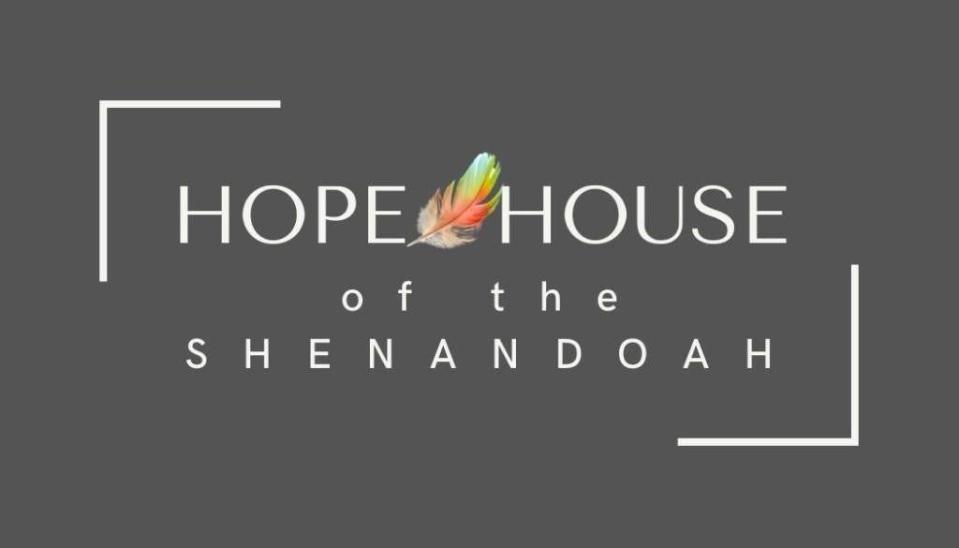Gimme shelter: Hope House's MeShawn Macklin helps get a roof over the heads of people in need
What happens when young adults become homeless in Augusta County?
If Valley Community Services hears from someone in the 18-to-24-year-old range who has become homeless, the board will reach out to Hope House to sign them for the rapid rehousing program.
That’s when they come to MeShawn Macklin, presently the only case manager for Hope House. They help young homeless folks between 18 and 24 years old get housing, allowing the clients to become “self-sufficient and self-stabilized.”
“For some of these folks, this will be their first apartment ever,” said Macklin. “[The clients often] take life by the horns, and [say] ‘I have to figure this out and I'm glad to have someone to help me figure it out.’ … Seeing their progression through feeling hopeless in the beginning, to finding that hope, finding that place, getting excited about finding jobs, getting excited about paying portions of their own rent, or paying their own bills, it’s heartwarming to witness. [Then I] see them growing, learning about life, learning about relationships, being themselves, and finding themselves.”
The Hope House is a Shenandoah LGBTQ Center program and receives funding from Virginia Department of Housing and Community Development - Housing Trust Fund (DHCD), Valley Community Services Board (VCSB), and Community Action Partnership of Staunton, Augusta & Waynesboro (CAPSAW).
The priority for the program is LGBTQ youth due to the 28 percent of LGBTQ youth who report housing instability, often directly as a result of who they are. The program gets clients into housing first, providing deposits, upfront costs, and up to a year of financial assistance, then helps them become self sufficient.
“We have a goal, once we enroll folks into the program, of getting them housed in 90 days or less,” Macklin explained. “Granted, that depends on the market and other barriers that may come up. … They have all the choice they want. If they want to live in a certain city, they choose how many bedrooms they’d like to live in, things like that. … Once we get them housed, we provide case management. … We help them with budgeting, help them get connected to community resources, like mental health [resources].”
For some members of the LGBTQ community, the complications continue even after being kicked out.
“I've had clients who are trans and can't access the shelters because of their trans identity,” Macklin explained. “We had to help them with like emergency shelter, which basically means finding alternative ways of shelter.
Macklin emphasized the program is not limited to LGBTQ residents – Macklin explained they work with anyone in the age range that needs help.
“We are the only youth-serving Rapid Rehousing program in the valley. Because [of this], we see a lot of 18-to-24-year-olds who are not a part of the LGBTQ community, but also still need assistance. We still service them, we still help them out in any way we can.”
The program does not come with job requirements or other restrictions. Macklin explained that this is the best way to find long-term success for their clients.
“There is no way that people are going to be able to find jobs and take care of themselves [if] they don't have a place to live. They don't have a place to clean themselves. They don't have a place to go to eat. I don't understand having a person gain all of these things before getting a house. Housing is a right. … I think that's what I like most about my job – we want to get you housed first, then we’ll worry about all the other things.”
The program is less than five years old; Macklin has been in their position for approximately one year. Over the last year, the need for more services and more case managers has become more pronounced. The Hope House waitlist currently has 30 people waiting. The waitlist number typically goes up during the hottest and coldest months, Macklin noted.
During the move in process, Hope House provides a package of basic necessities to the clients but cannot cover everything. Macklin asked that anyone willing to donate furniture to folks in the program please do. Those that want to help can find more information www.shenlgbtqcenter.org.

According to the Staunton Diversity, Equity, and Inclusion Commission’s recently published comprehensive report, housing is directly connected to mental health and economic outcomes.
“Housing, neighborhood, race, education, and criminal background are all social factors that are intimately interwoven with social class," reads the report. "Homelessness and lack of access to affordable housing are directly related to financial resources, and in turn health outcomes. As explained by multiple community partners, if someone is unsure about where they will sleep tonight, it is tough for them to focus on or prioritize their mental or physical health. The unhoused are more likely to visit the emergency department (ED) for mental health or substance-related care, are five times more likely to be hospitalized for issues related to diabetes, have a 2-3 times greater risk of heart disease, and on average will die 10 years earlier than someone who has never experienced homelessness. In sum, ‘housing is healthcare.’”
The report pointed to data showing that 7 percent of Staunton residents reported experiencing homelessness in the past two years, a 1.5 percent increase from the 2019 data. These data are not limited to youth.
Hope House is currently looking for another case manager – applications are welcome through Indeed.com or emailed to hopehouse@shenlgbtqcenter.org.
The program is also starting a Youth Action Board, a committee looking to end youth homelessness in the community. The website notes “Community members who have been Hope House clients in the past and others who have experienced being unhoused, members of the LGBTQ+ community, and BIPOC community members are encouraged” to apply to the paid boardmember positions. More information can be found at www.shenlgbtqcenter.org/general-8.

This article originally appeared on Staunton News Leader: 'It's heartwarming' Hope House case manager on helping homeless youth: 2023 Newsmakers

